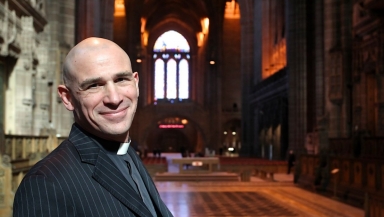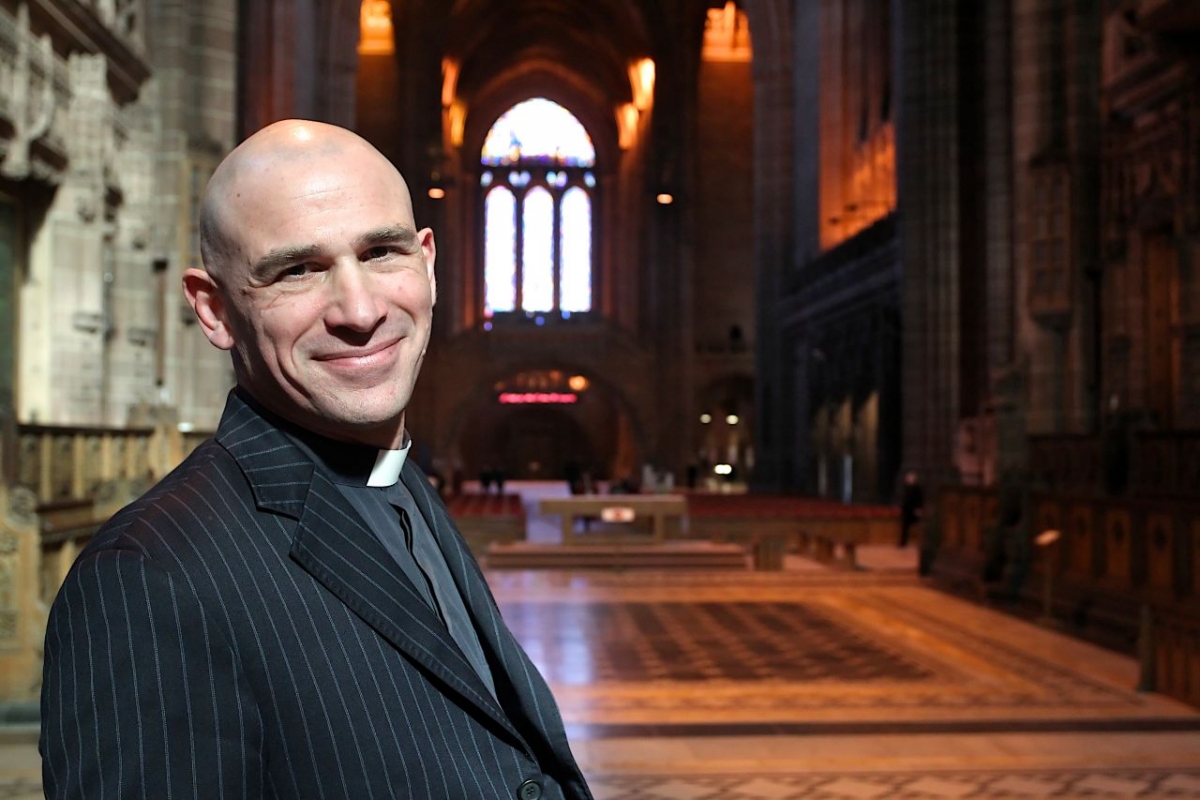 Bishop Pete Wilcox (Photo: Diocese of Sheffield)
Bishop Pete Wilcox (Photo: Diocese of Sheffield)
How has a serving Church of England bishop got time to chair a statutory public inquiry into the ‘Battle of Orgreave’ in the 1984 Miners’ Strike?
The Bishop of Sheffield, Dr Pete Wilcox, apparently has, despite the challenges of low clergy morale and dwindling congregations that the national Church faces. In 2019, he tried to persuade the then Conservative Home Secretary, Sajid Javid, to let him head up an inquiry into the clash between police and striking coal miners at the Orgreave Coking plant in South Yorkshire.
Javid turned him down but when Labour got elected last year with a manifesto commitment to launch an Orgreave inquiry, Bishop Wilcox found himself preaching to the choir. On July 21, when Labour Home Secretary Yvette Cooper announced the inquiry to be chaired by Bishop Wilcox, Daily Mail columnist Richard Littlejohn wrote a piece headlined “First they came for the soldiers, now it’s the coppers … Orgreave is another excuse to dance on Mrs Thatcher’s grave”.
Back in 1984, Littlejohn was a young industrial correspondent for London’s Evening Standard. In his Mail piece, he described the Orgreave clash in which fortunately no one died:
“It wasn’t pretty. Police charging on horseback and pickets hurling rocks made for almost medieval scenes. But the police didn’t start it. The blame was entirely down to (Arthur) Scargill (then leader of the National Union of Mineworkers), a revolutionary communist who thought he could prevail through violence.”
Littlejohn was scathing about Bishop Wilcox’s involvement: “The inquiry will be chaired by the trendy Bishop of Sheffield, ‘Pete’ Wilcox, who has declared it is important for ‘community healing’. So no bias there, then.”
The Guido Fawkes political website also weighed in on July 21: “Over the weekend the government announced it will capitulate to the demands of left-wing campaigners and launch a national statutory inquiry into the Battle of Orgreave.”
Branding the inquiry “a taxpayer-funded exercise in Thatcher-bashing”, Guido quoted Yvette Cooper: “I think the miners’ strike still has deep scars across coalfield communities, and the decisions made at that time – the broadest decisions that were taken by the Thatcher government in the 1980s – the scars can still be felt across the coalfields.”
Guido commented on Labour’s appointment of Bishop Wilcox to chair the inquiry: “Wilcox previously attacked the Tories and was naturally one of the bishops to put his name to an open letter opposed to no-deal Brexit. Should get the intended results then…”
I asked Archbishop of York Stephen Cottrell, to whom the Bishop of Sheffield is accountable in the C of E’s Northern Province, whether he had been informed of the time commitment that chairing the Orgreave Inquiry would involve. Was Archbishop Cottrell satisfied that this commitment would not detract from Bishop Wilcox’s canonical duties in his diocese?
I also asked what the Archbishop’s view would be of a stipendiary (paid) incumbent in his own diocese of York who took on a time-consuming secular commitment? What is the threshold beyond which a vicar would be in danger of neglecting his or her parochial duties?
A spokesman came back with this statement: “The Archbishop has been informed of the anticipated time commitment involved. While the exact scope and duration will evolve as the Inquiry progresses, Bishop Pete will continue to fulfil his responsibilities as Diocesan Bishop, and his canonical duties will be maintained.
“The Archbishop considers this appointment a natural extension of episcopal ministry in the public square, following the example of Bishop James Jones serving on the Hillsborough Independent Panel. He holds Bishop Pete in his prayers and is grateful for his willingness to serve in this way.”
The reference to the former Bishop of Liverpool, James Jones, is significant. When from 2010 to 2012 Bishop Jones chaired the panel that produced its report into the 1989 Hillsborough football stadium disaster in which 97 Liverpool fans died the Church of England was not thriving but it was not in its current parlous state.
Numbers attending C of E churches in Bishop Wilcox’s own South Yorkshire diocese have fallen by 24 per cent since he became Bishop of Sheffield in 2017. Then all-age average Sunday attendance across the diocese was 13,400. By 2023 it had fallen to 10,200. C of E dioceses across the board have failed to get back to their pre-Covid attendances but the Covid excuse gets ever thinner with each passing year since lockdown ended.
In 2019, The Sheffield Star reported on Bishop Wilcox’s decision to set up a “task and finish group” to look into cutting frontline clergy numbers to save money. The paper quoted Bishop Wilcox’s statement on his diocesan website: “While at the end of 2018 we had 103 stipendiary incumbents in the Diocese of Sheffield, in fact (were it not for the sale of three properties), we could afford only 90 this year.”
Morale is hardly riding high in the C of E. To be a parish vicar in Sheffield Diocese must be particularly challenging. Has not Bishop Wilcox already got his hands full looking after the clergy and parishes he is pastorally responsible for and leading his diocese in pro-active evangelism and church planting?
Julian Mann, a former Church of England vicar in Sheffield Diocese, is an evangelical journalist based in Lancashire.
